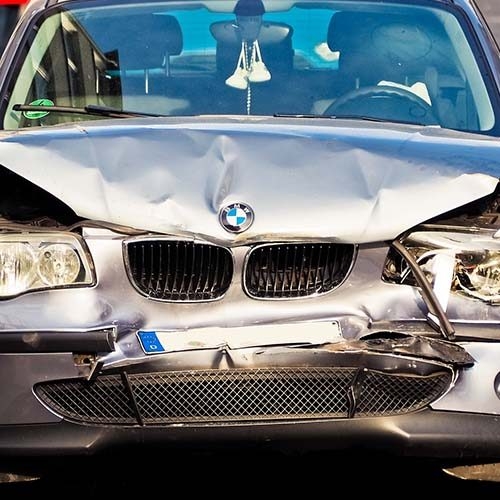
$550,000 Settlement
Rear-End Collision Followed by Three Unrelated Falls
Car Accidents
After a rear-end car collision our client immediately felt neck and low back pain requiring an ambulance ride to the ER. Our client reported this pain caused her some degree of occasional instability in her legs, resulting in a total of three (3) falls subsequent to the collision. Two of the falls were shortly after the collision and prior to any diagnostic testing. Despite this “instability” our client told her doctors the first fall was a “slip” in her shower, the second fall was a “slip” in mud in her backyard, and her third fall was a “slip” in spilled water on her kitchen floor. About two years after her falls and two years before her surgeries our client was involved in an at-fault crash.
Future diagnostic testing taken after the collision and two of the falls showed damage to her cervical and lumbar spine. After exhausting all conservative means she underwent a successful two level cervical fusion followed by a successful two level lumbar fusion.
Her own insurance company denied her claim, arguing the falls, and not the automobile collision was the true cause of the spinal damage. Our client was treated by two different surgeons. Nether surgeon knew one another, yet both agreed the collision was the most likely cause of the spinal damage. The insurance company then hired a doctor to examine our client and not surprisingly, the insurance company doctor disagreed with both treating physicians.
Adding further insult to injury, the insurance company sent our client $35,000.00 in hopes that she would just go away. Knowing she had no history of falls prior to this collision, and no instability after the surgeries, our client and her family remained confident as to the cause of her injuries. Notwithstanding their certainty, the cause of the injuries remained an uncertainty and all sides knew this was something a jury could disagree on. Nevertheless, the attorneys of Beall & Thies held their ground and continued to remind the insurance company the law only required proof of the “most likely” cause of the injury, not the absolute certain cause. At the end of the day, the insurance company was forced to make reasonable compensation to our client.
Future diagnostic testing taken after the collision and two of the falls showed damage to her cervical and lumbar spine. After exhausting all conservative means she underwent a successful two level cervical fusion followed by a successful two level lumbar fusion.
Her own insurance company denied her claim, arguing the falls, and not the automobile collision was the true cause of the spinal damage. Our client was treated by two different surgeons. Nether surgeon knew one another, yet both agreed the collision was the most likely cause of the spinal damage. The insurance company then hired a doctor to examine our client and not surprisingly, the insurance company doctor disagreed with both treating physicians.
Adding further insult to injury, the insurance company sent our client $35,000.00 in hopes that she would just go away. Knowing she had no history of falls prior to this collision, and no instability after the surgeries, our client and her family remained confident as to the cause of her injuries. Notwithstanding their certainty, the cause of the injuries remained an uncertainty and all sides knew this was something a jury could disagree on. Nevertheless, the attorneys of Beall & Thies held their ground and continued to remind the insurance company the law only required proof of the “most likely” cause of the injury, not the absolute certain cause. At the end of the day, the insurance company was forced to make reasonable compensation to our client.